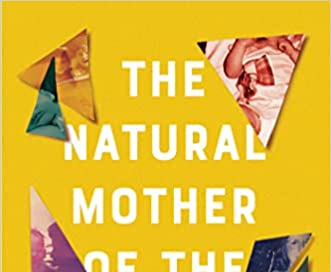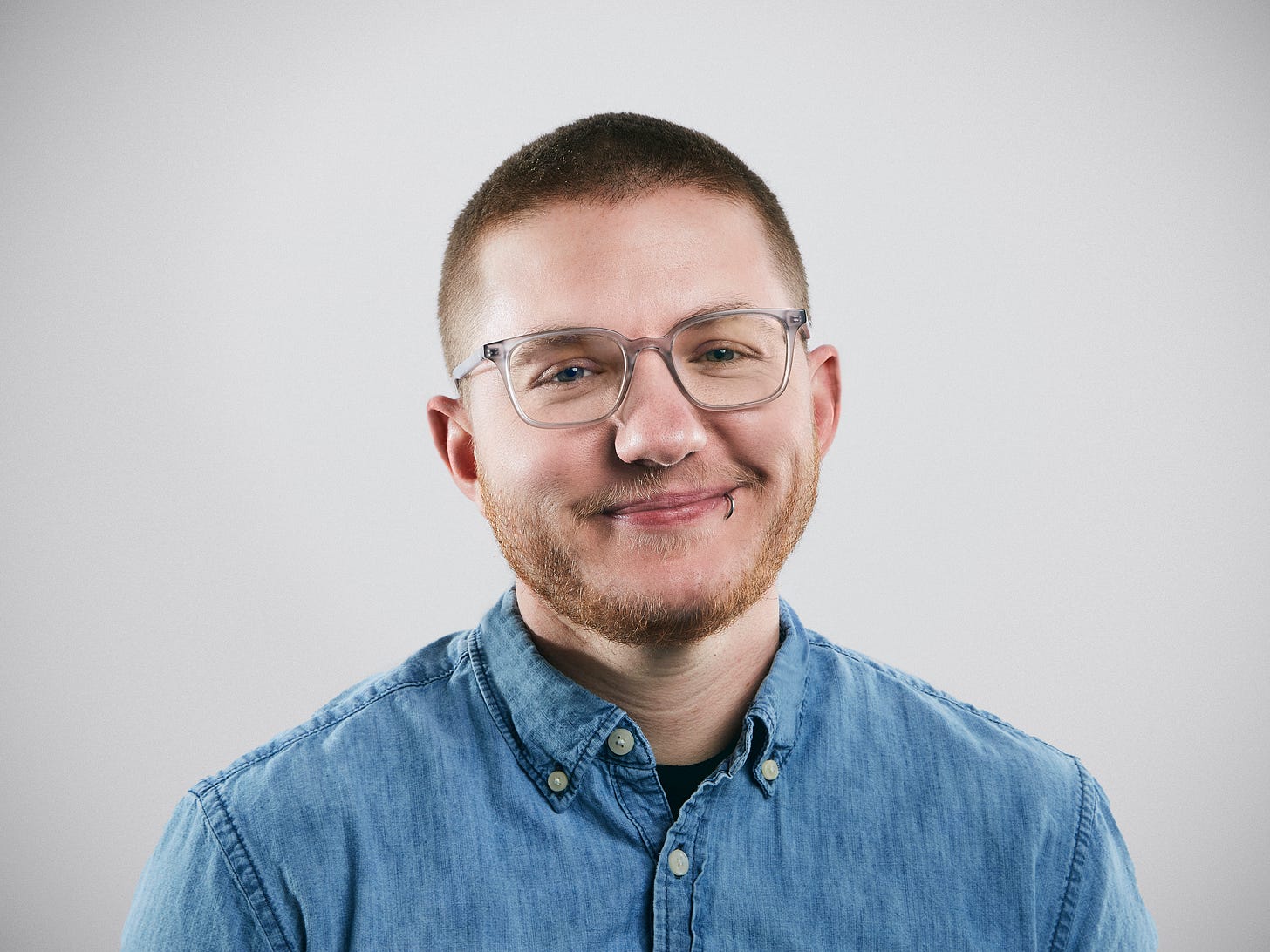"Mamas," "littles," and the inclusivity/exclusivity of maternal language
Krys Malcolm Belc on how language "welcomes and excludes at the same time."
When I first started thinking about the onion that is momfluencer culture, one of the many layers I was interested in examining was the layer of language. Quick - what are the first few words that come to mind when you think about standard momfluencer fare? For me, it’s “mamas” first and foremost, followed close behind by “littles.”
Despite all three of my kids going through phases of calling me “mama,” I’ve never felt like a mama. And while I don’t at all presume my notion of of “mama” to be identical to everyone else’s, for me, “mama” has always connoted ease, softness, gentleness, femme-ness, and, above all, “naturalness” (if I could make those particular scare quotes bigger, I would). “Mama” has always seemed like a word meant for someone else, not for me: a mother/mom/parent for whom maternal identity has always been fraught, never “natural.”
The words we use to talk about parenting and parenthood communicate so much - about race, about class, about politics, and maybe especially, about gender. When I think about the Ideal Mother™, she is tightly bound up by proscriptive gender norms, and these gendered binaries often bleed into language. And that language informs how we value or devalue individuals as parents—and as people.
Krys Malcolm Belc is the author of the absolutely beautiful memoir, Mother of the Natural Child: A Memoir of Nonbinary Parenthood. Here’s a little passage about Mother of the Natural Child from one of my favorite reviews of the book by Frankie de la Cretaz for NPR.
In the crowded genre of memoir about mothering, Krys Malcolm Belc's debut, The Natural Mother of the Child, asks: What do we do with someone who is parenting the child they gave birth to, but is not a mother at all? Where do transgender and non-binary parents fit, especially in a world that is determined to force them into a box labeled "mother?"
As de la Cretaz points out in their review, our culture loves narrowly defined categories, particularly when it comes to parenting, and Krys’s memoir explores what it means to “occup[y] an in-between space that defies categorization.” When it comes to protecting and maintaining gender binaries, language is a powerful tool. It is everywhere and all at once, but because of the utilitarian, everyday nature of language, we often don’t recognize its role in shaping and reenforcing power structures.
I originally reached out to Krys to interview him about maternal language in momfluencer culture when I was researching Momfluenced (still available for preorder - can’t stop won’t stop hustling 💃), but, as was the case with many sub-themes of momfluencer culture, I simply didn’t have the space to do as deep a dive into language as I wanted to in the book. So I’m delighted to share our interview here.
Hi Krys! So the first words I think of when I think about momfluencer culture are "mama" and "littles." Not sure how much (if at all) you follow momfluencer culture, but do you have thoughts about how language functions in online performances of motherhood?
I was much more tapped into the mom internet when my first two kids were born three months apart in 2012 and 2013, so things were much more about mom blogs and Facebook at that time and have shifted quite a lot as I’ve moved on. But I think at its core creating a language around identity and experience is about creating a sense of belonging. In a way that’s great. But it also serves to exclude people who do not have the time, resources, in-group dynamics (being white, being middle or upper class, being very online) to belong. Like even though I’m trans and use he/him, etc. I was for years much more able to navigate our local “Fishtown Mamas” Facebook group because my partner worked a lot more and like, who has the time? Language and abbreviations in a way solidify an idealized conceptualization of an experience. Every image of motherhood that is presented or held up as a stock image is going to exclude a lot of people. When I think “mamas” and “littles,” I think about mom blogs I was reading a decade ago that started doing that joint work of welcoming and excluding at the same time.
A certain subset of momfluencers really lean into the "sacred maternal" vibes of motherhood. But where does a celebration of motherhood (with all the wonder it can entail) intersect with exclusion and TERF-iness when it comes to those same "pro-women" mothers decrying terms like "chest-feeding" and "birthing parent" as supposedly "erasing" moms? I’d love your thoughts! It's particularly upsetting when otherwise progressive moms (people fighting for reproductive rights, fighting for abortion rights, fighting to end period stigma, etc) become suddenly ruffled by inclusive language.
This is really hard for me, and has been (to be frank) a challenge even in my own partnership as I’m married to a cis “mama” who works at a birth center, did a shit ton of lactation education, etc. Like when I got pregnant, all I knew was what she had gone through so yes I read Ina May Gaskin and stuff like that and then had to come to accept the fact that so much of that world sneers at my life. In 2021 my partner is saying “birth person” and she’s going to trainings about trans inclusive birth work but she was not doing that in 2013 when I had my baby. Being able to acknowledge a trans individual’s humanity and being able to integrate that into how you shift your language about a wide group are two different things. People grow slowly and I want to leave space for that.
I think here it’s just important to point out that I exist whether or not people choose to notice, acknowledge, or include me. My existence does not erase other people, that is ridiculous. I think it’s fine to use whatever language you want when you’re talking with your people, the people in your crowd. Please refer to yourself in the terms that feel most affirming. Just like I have places where I go to talk about my T dick or whatever, and I have language about myself I only use with other trans people, it’s ok to organize around a shared experience. What isn’t ok to insist that the public sphere center your experience. People who get pregnant, give birth, and care for kids don’t get the healthcare we deserve, we don’t get the leave from the workplace we deserve, and we don’t get the support or dignity we deserve, so why would we not want to be inclusive in who we bring into the movement to change that? It’s baffling.
Why is “mother” a loaded word in a way that “parent” simply isn't? Also, do you want to talk about why/how you chose your book's title?
Mothers are in many ways a marginalized group due to the amount of unpaid care labor that mostly women are tasked with doing. Our nation is swollen with unimaginable wealth and yet there is no safety net for parents, with mothers doing an outsize amount of care work, and notably specifically women of color doing a lot of the labor of home health care, daycare, etc. So I think there is a degree of organization around motherhood that makes sense since it could theoretically be about empowering providers of care work in the home and in society. Instead it often morphs into valorizing white middle class motherhood and excluding everyone else, including transmasculine people but also ultimately also moms who are not cis women, disabled moms, Black moms, etc.
I chose my title because I felt like it was an act of defiance to lean into this label that was being applied to me by the state that does not capture my identity or experience and to challenge people to think about whether the experiences I am exploring are really exclusive to motherhood or whether we can push on the boundaries of what that even is.
I think there's this sense (among some momfluencers) that creating really specific language around motherhood will somehow support people who identify as mothers (and I think some TERFs truly believe their exclusionary, harmful actions are empowering moms). Why do you think language as it pertains to parenthood is so emotionally charged?
When an inclusive movement to increase care working conditions fails to materialize what are we left with? It’s all about centering the personal, which I think social media feeds into in an almost magical way. People who are not supported are emotionally on the brink, and it’s easy to blame some transmasculine person for muddling the movement instead of looking at who is actually acting (and voting) in ways that restrict abortion access, etc.
Any thoughts about motherhood-centric acronyms? THERE ARE SO MANY (SAHM, LO, etc etc). I really don't see this happening with fatherhood.
The only thought I have about this is when I first joined online parenting spaces (mostly Facebook groups) I was immediately blown away by how many FTMs there were in there. I was like, wow, this must be a progressive group with so many trans guys in it! They will definitely help me around here. I think because I’d been in trans online spaces longer I never adjusted to the “first time mom” thing, no matter what the context of the post was. And in a way I think that shows again how acronyms and code words immediately signal belonging and welcoming at the same time they can cause alienation and confusion.
Thank you Krys!
For more of Krys’s work, here’s a piece on breastfeeding (and so much more) he wrote for The Rumpus, here’s an interview he did about his book for the Chicago Review of Books, and here’s him talking to Vogue about calling parents by their names (dear every male pediatrician I’ve ever met - this is for you - please stop calling me “mom”!)
You can follow Krys on Twitter here.





